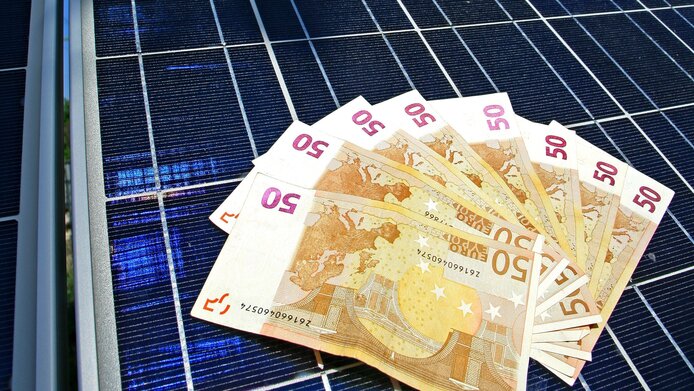Getting rich through environmental policy

Every individual wants to preserve natural resources for future generations – a comforting assumption, in theory. In practice, however, it’s often a different story. Not every participant in a society is concerned with the well-being of others, or even willing to limit himself/herself for them. This is a serious problem, particularly when it comes to environmental policy: In order to avoid potential damage in the distant future, expenditures must be incurred immediately. Now, with the support of the Austrian Science Fund FWF, a new dynamic theory is being developed to show that the prosperity of future generations can indeed also create wealth for current generations.
Climate Protection & Capital
In this regard, Armon Rezai, professor at the Vienna University of Economics and Business (WU) and visiting researcher at the International Institute for Applied Systems Analysis (IIASA) in Laxenburg, in collaboration with his international colleagues, is analysing the following scenario: To lower resource consumption, a policy measure is adopted that incurs economic costs upon implementation. At the same time, however, it also reduces future environmental and, in particular, climate damage, and thus future production costs. This relative increase in future prosperity can manifest itself, for instance, in economic growth, job creation and higher incomes. Rezai explains: "The time gap between the costs and the benefits of environmental policy measures is a major challenge.
The key observation of our project is that the capital market can serve to translate such future positive economic developments into higher assets today. This can occur, for example, through investments in the form of government bonds, securities or stocks." This change in the current assets can be used to finance, at least in part, the costs of the policy measure. "Our model takes multiple generations into account, theoretically over an infinite timeline. In that respect, it is suitable particularly for analysing environmental policy, since natural resources exhibit very slow regeneration processes, and environmental policy measures therefore sometimes require far longer planning horizons than other policy measures," says Armon Rezai.
Generations X-Y-Z
A further aspect that is incorporated in the model is the possible revision of current measures. For instance, the decisions made today by generation X could be eliminated again by the subsequent generation Y, leaving generation Z empty-handed. To account for this "commitment" problem, different voter models and their relevance to intergenerational prosperity are analysed. Overall, Rezai compares multiple social scenarios from the field of economics and game theory with each other: first, a laissez-faire scenario, i. e. a scenario with no political intervention with respect to resource conservation; second, the social optimum, in which both current and future generations willingly reduce their consumption; and third, a so-called Markov perfect equilibrium – the equilibrium concept in game theory in which future players can eliminate current measures. Applied to the policy areas of climate change and foreign trade, this framework will be able to serve as a theoretical aid for the long-term planning of targeted policy measures. Ideally, this FWF sponsored project will contribute to fast and appropriate action being taken globally on urgent environmental policy issues.
Personal details
Armon Rezai researches at the Vienna University of Economics and Business (WU), where he is deputy head of the Institute for Ecological Economics. Rezai also is visiting researcher at the International Institute for Applied Systems Analysis (IIASA) in Laxenburg. His research interests are Macroeconomics, Political Economy, Climate Change Economics, Distribution and Inequality, Environmental Policy and Financialization.
Personal details
Armon Rezai researches at the Vienna University of Economics and Business (WU), where he is deputy head of the Institute for Ecological Economics. Rezai also is visiting researcher at the IIASA in Laxenburg. His research interests are Macroeconomics, Political Economy, Climate Change Economics, Distribution and Inequality, Environmental Policy and Financialization.





